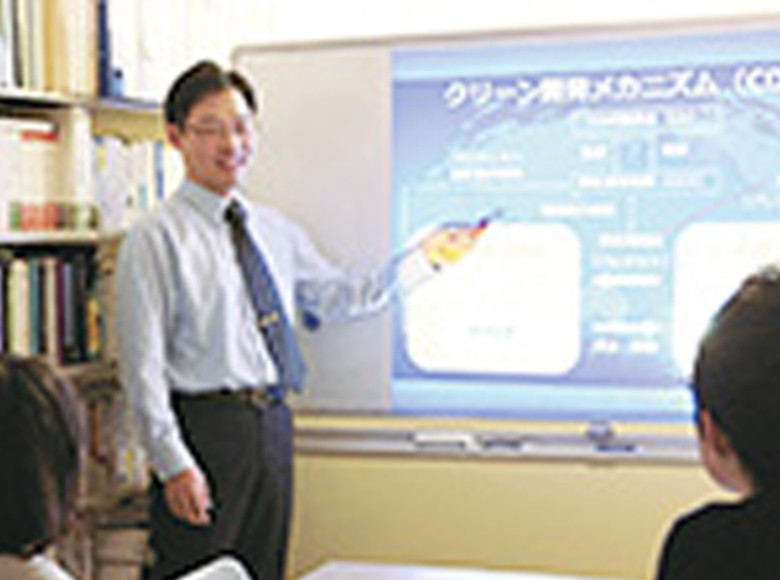Undergraduate Socio-Environmental Studies [Humanities]
Students will learn how to deal with environmental issues from the perspective of humanities and social science such as "economy and management", "law and policies", and "human activities".
Students will obtain problem finding and solving abilities which are applicable to variety of fields.
Students will learn how to deal with environmental issues from three perspectives of humanities and social science: "economy and management", "law and policies", and "human activities". As a result, students will obtain problem finding and solving abilities in addition to information processing knowledge and language skills.
Field of Study
- Study of environmental issues from economic and management perspectives including business economic activities.
- Study of environmental issues from law and political perspectives including laws and policies of a government.
- Study of environmental issues from the perspective of human activities including psychological and cultural aspects.
Career Outlook
Taking advantage of knowledge obtained through the study at the department, students can exert their ability to solve environmental issues in variety of fields such as private companies, local authorities, schools, and local communities.
- Employment Rate (As of March 2024): 100.0%
- Total number of graduates: 157
- Total number of graduates who sought for jobs: 149
- Total number of graduates who received job offers: 149
- Total number of graduates continuing education: 1
- List of Employers
- ITOEN, LTD.
- Canon Inc.
- Sankyu Inc.
- Shiseido Company, Limited
- Starbucks Coffee Japan, Ltd.
- Dai-ichi Life Holdings, Inc.
- The Chugoku Electric Power Company, Incorporated
Research and Development for Future
Research of international cooperation schemes to deal with international economy and global warming issues.
Jung Woojong, Professor
Analysis of the effect of environmental cooperation schemes
Our laboratory carries out researches on a realization and effects of new schemes for international environmental cooperation which will be possible by sharing risks arising from preventive measures against global warming. Based on the research, we study theories with regard to schemes of a northeast Asian community as a solution for energy and environmental issues.
Research of the international emissions trading market
Many people are placing their hope to the expansion of the European Union Emissions Trading Scheme (EUETS) and to the variety of Clean Development Mechanism (CDM) as a new scheme of the post-Kyoto Protocol. In this situation, our laboratory is researching on designs of international emissions trading market schemes to focus on balanced distribution of resouces to regions and on the procedures of CDM projects.

![Faculty of Socio-Environmental Studies [Humanities]](/files/bgeditor/img/8082__cGljdC1zeWFrYWlfa2Fua3lvLW12.jpg)

